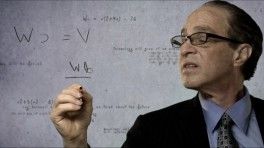Years back I published a science-fiction novel with Mursia, in Italy. The title was ‘Black Hole’ One of the characters was the director of CERN in Geneva, an Italian professor. He was a bad character but he had been working hard on immortality and he announced his findings just a few minutes before launching the Large Hadron Collider at its maximum power. His dream of immortality was a materialistic one: having accepted the fact that the process of cells’ decay is unstoppable – while electrons seem to be immortal – he had the idea to ‘downloading’ all what we have loaded in our brains during our existence and implants it in the brains of newly-born babies. All our memories, the first sight of our mother’s eyes, the first cigarette, the first kiss…in so doing what constitutes our self, our ego, with the heavy mass of knowledge, sentiments, emotions and raw data, attached to it will be transferred into fresh brains.
This, by the way, would create the possibility of interstellar transmission without moving our body by loading frozen brains in spaceships and, on reaching a certain planet, a beam coming from Earth would transfer our individuality into them.
Well, well, in my book the hopes of the professor to build such new ‘Babel Tower’ were cruelly dashed because the powerful collisions in the LHC created a micro black hole which then expanded destroying the planet, or most of it.
For people who do not entertain religious hopes – or historical and literary hopes, which Denis Diderot was pursuing not believing in God – the race is still on to find immortality.
Or, at least, longevity, to prolong our lives to 120 or 150 years, a target that seems within reach because of the astounding progress made by medicine and biological sciences in the last century.
Alex Zhavoronkov, a 37 years old Baltimore-based CEO of InSilico Medicine, thinks he will live until 150. He has a master in biotechnology at John Hopkins University and he takes more than one hundred pills and supplements every day. He says: ‘The longer you live, the longer you will be able to live, since more promising biomedical technologies are developed in labs around the world every year.’
Peter Thiel, the 47 year old billionaire and co-founded PayPal is planning to reach the threshold of 120 years. He follows a special diet and takes human growth hormone every day. He is well aware that he is increasing his cancer risks but he hopes that within the next decade cancer will become curable. He invests part of his wealth into stem cells research and biotechnology companies.

Ray Kurzweil, futurist and author of the 2005 New York Times bestseller The Singularity is Near: When Humans Transcend Biology heads a research team at google and is an adviser at Calico project. He is undergoing body scans regularly to check lipids accumulation into his vessels, gulping down 100 pills a day, including Q10, lutein and bilberry.
The singularity Kurzweil mentioned in his book will be the time when computers will match human creativity: around 2029, and the point when computers will be able to redesign themselves without human intervention by 2045, two years after the final handover of Hong Kong to China…
The quest of Kurzweil begun as a child, right after the loss of his father: an orchestra director and pianist. His original plan was to build billions of micro-robots which will be able to enter into his father’s grave and mine his DNA and other organic traces to rebuild him piece by piece, giving his beloved dad back to him. At 67 he is still pursuing that dream but in the meantime he is producing an avatar version of his dad, using all his documents he had kept in boxes, tapes showing him playing, notes and doodles he had left behind.


![cop[1]](https://www.gingkoedizioni.it/wp-content/uploads/2015/07/cop1.jpg)